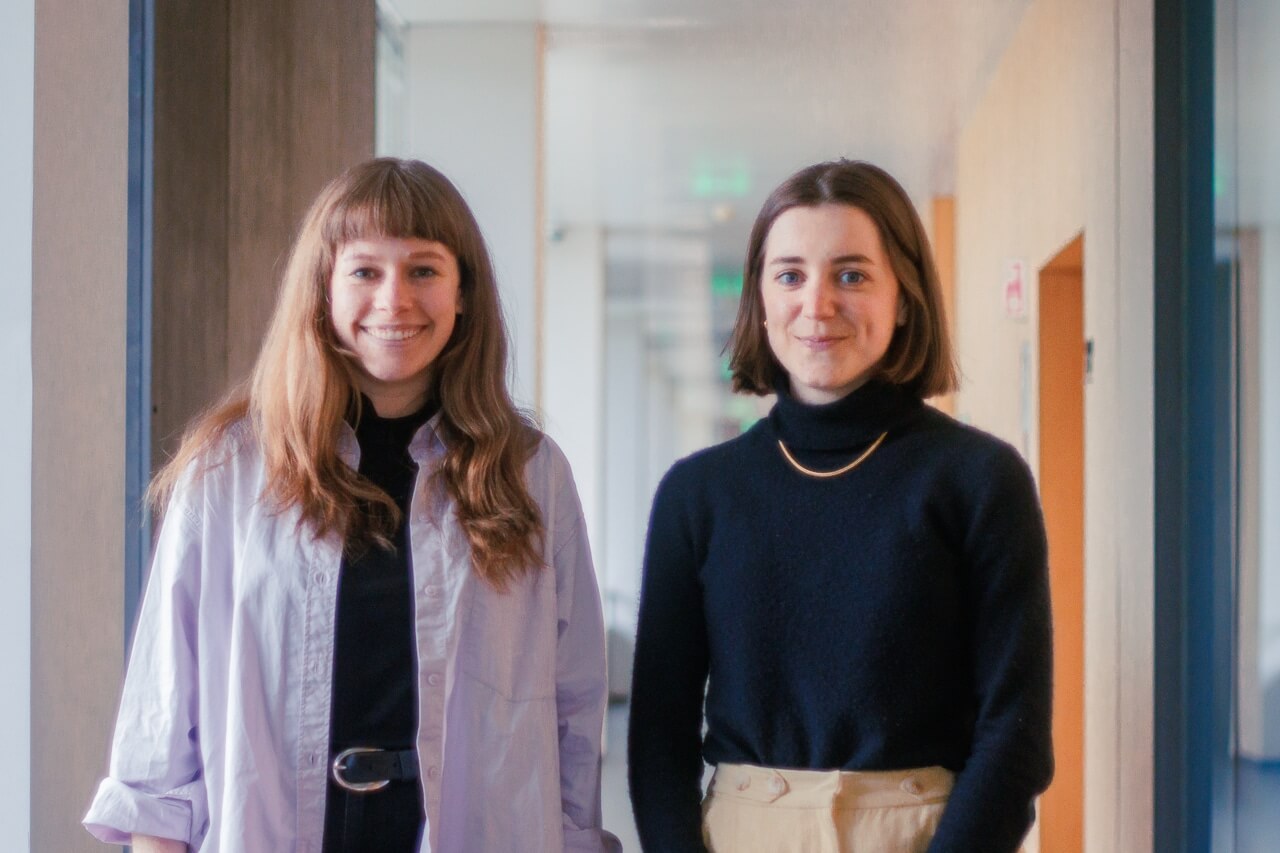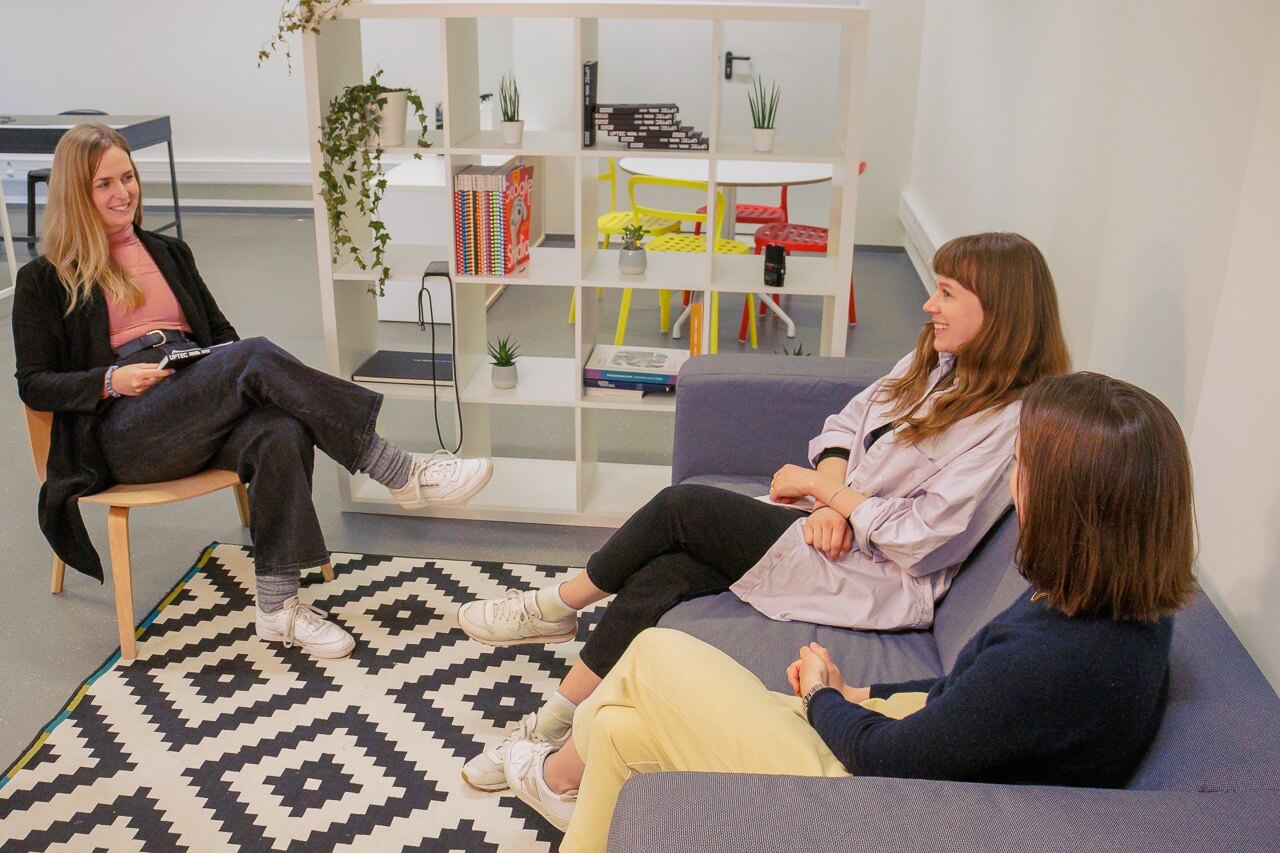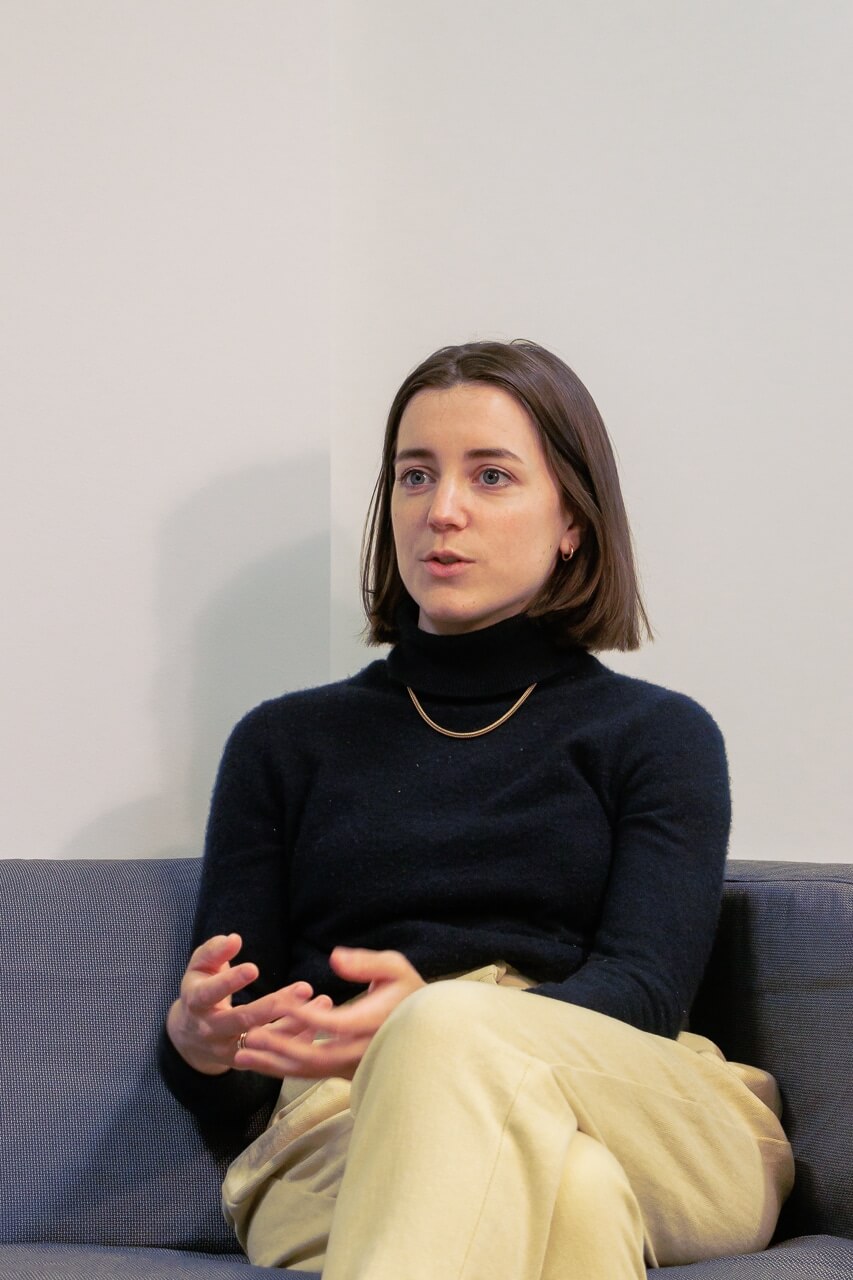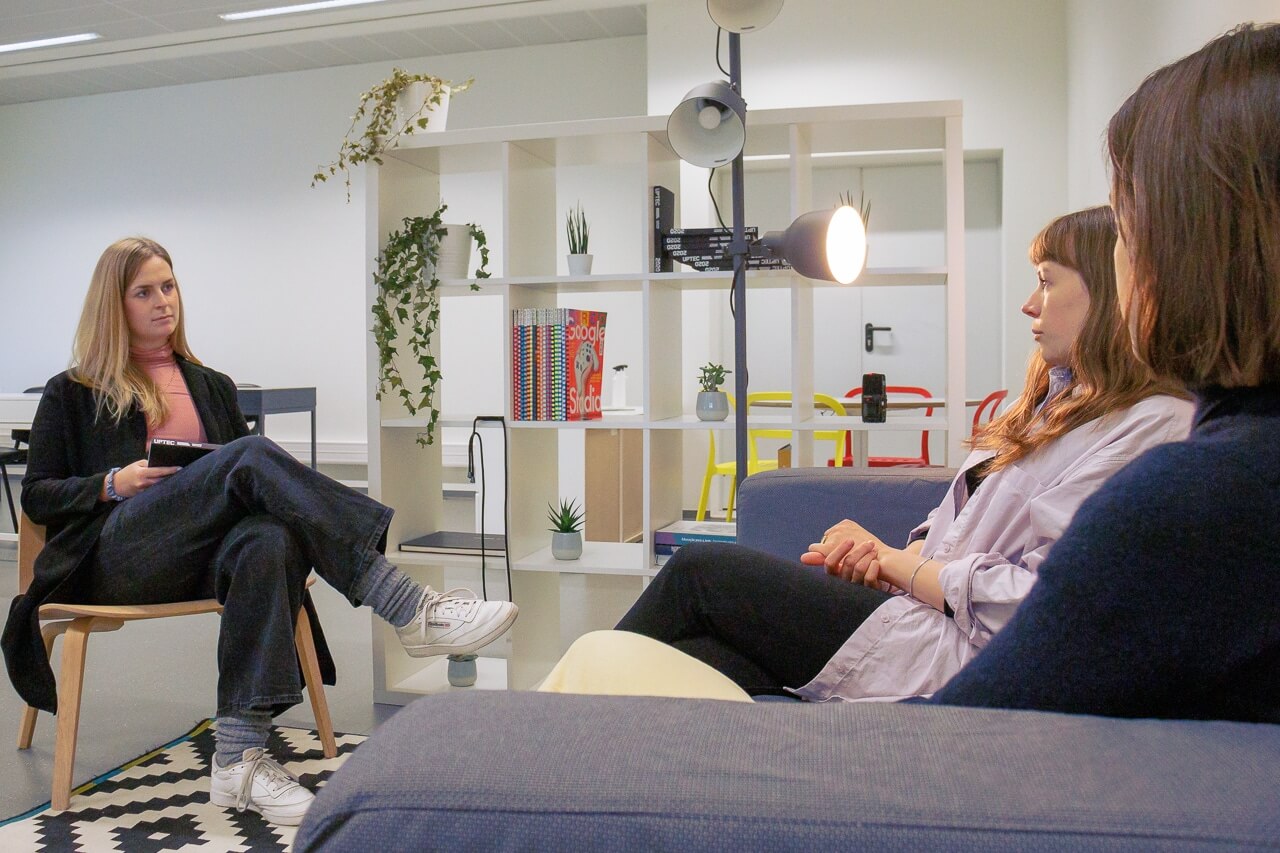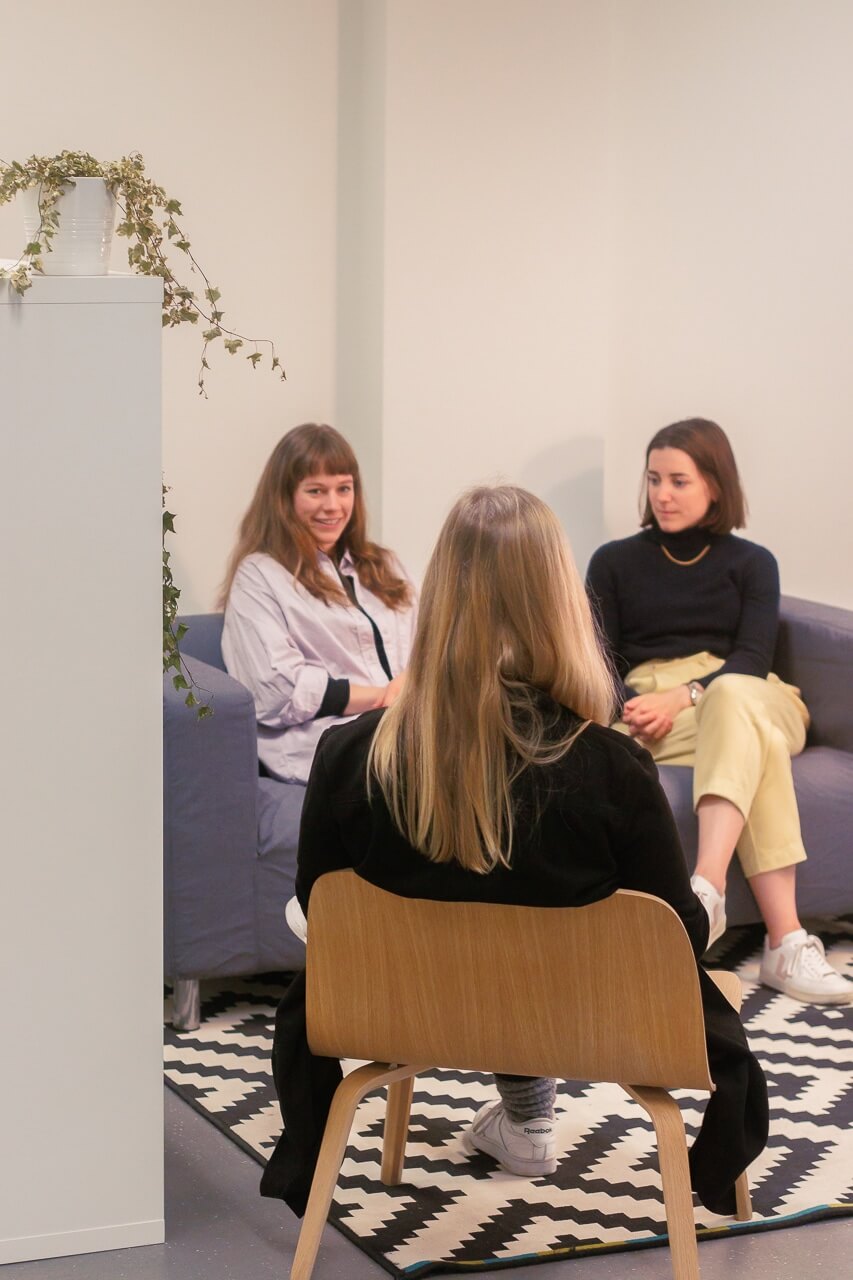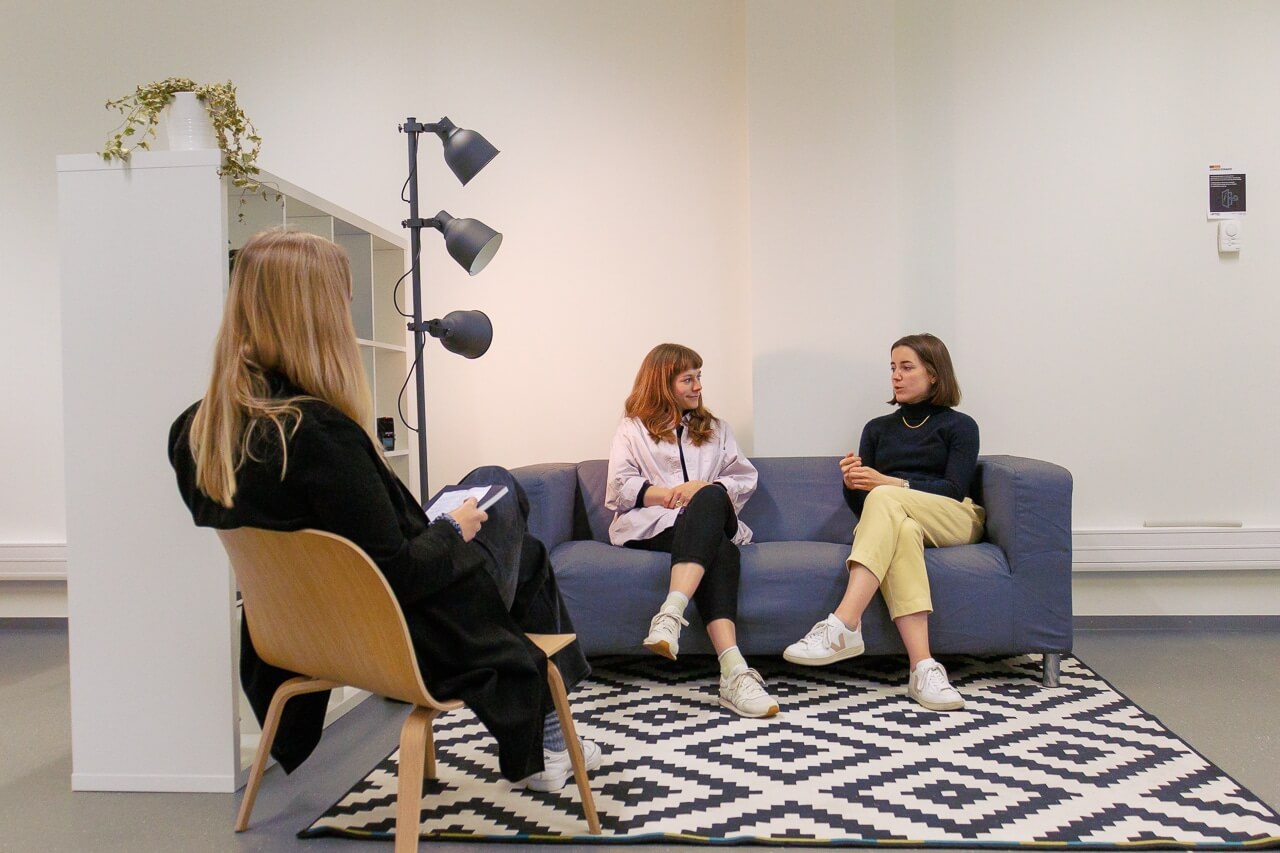“We have the impression that Porto clearly has the transition towards circular economy on their agenda”
“We have the impression that Porto clearly has the transition towards circular economy on their agenda”
At UPTEC, we give great importance to sharing the creation and development of business projects, and we are always open to new ideas and challenges.In the "Open Doors" section we introduce you to our international innovation centers, external partners and investors that enhance the UPTEC community. Thus, in this "Open Doors", we present Johanna and Luise, two research students from the Hamburg University of Technology at the Institute of Technology & Innovation Management, who came here to understand more about how companies innovate towards circular economy.
OpenInnoTrain is a global network of researchers and industry professionals across Europe and Australia. UPTEC is part of this consortium, together with the Institute where Johanna and Luise study.OpenInnoTrain promotes the translation of research between university-industry through cooperation and Open Innovation in the sectors of cleantech, foodtech, industry 4.0, fintech. The research project is focused on open innovation and research translation between academia and industry with a 22-member research consortium across several countries.
Can you introduce yourself and tell us a bit about your research project?
My name is Johanna, I am a research assistant and doctoral student at the Hamburg University of Technology at the Institute of Technology & Innovation Management. I am currently conducting my research on circular economy (CE) in cities, regions and companies. I am analyzing how different actors in the value chain strategically implement CE and collaborate with each other in the transition towards a CE with a special focus on the construction industry.
My name is Luise, I am also a research assistant and doctoral student at the Hamburg University of Technology at the Institute of Technology & Innovation Management. My research focuses on understanding how companies innovate towards circular economy. More specifically, I focus on understanding which tensions they are experiencing when striving towards circular economy and how they overcome these tensions. I look at the topic from different angles, on the one side from the management perspective, on the other from the employee perspective.
Why did you choose to come to UPTEC for your research project?
Luise: We got aware of OpenInnoTrain and after doing our research we encountered that UPTEC was quite a new partner to the program. Doing our research on activities related to circular economy in Porto, we were positively surprised about the broad landscape of activities related to that field. It seemed especially interesting for Johanna as Porto is a region with a particular commitment to circular economy.
Johanna: Indeed! There are several initiatives like the circular city declaration, where the city of Porto is part of. We have the impression that the city of Porto clearly has the transition towards circular economy on their agenda. This fact made it really interesting for us to come to Porto. Besides, Porto is a beautiful city and the environment of UPTEC made us really want to come.
Luise: Before coming to Porto, we also checked out the companies and business projects incubated at UPTEC. The environment seemed very promising and we were hoping to get in contact with several stakeholders emerging from this environment.
What expectations did you have before starting your secondment in Porto?
Johanna: Definitely learning new things & understanding how people and companies here are moving towards circular economy. Understanding their struggles and learnings but also sharing our ideas were our expectations before coming to Porto.
Luise: We were also very curious to see what activities were promoted online and how there were actually happening offline. Probably we will get to speak about this later on, but we encountered that it is often much more popular on what is happening online and to see what is actually happening in the real world.
The (UPTEC) environment seemed very promising and we were hoping to get in contact with several stakeholders emerging from this environment.
Were your expectations met?
Johanna: I mean, our expectations definitely were met, in a way that we could talk to a lot of people. We could count on the support of UPTEC and we enjoyed the mentality and support of everyone we met. Our interviews were going into different directions. Sometimes, we were really surprised about the answers and activities of our interview partners, in other situations we had bigger expectations before the interview, but that’s part of the game, I guess.
Luise: I think that our expectations were also met in a sense that we were able to get a better feeling about what is happening here in the city of Porto. In advance, we only had an idea, and now we more or less got a feeling on what is going on in terms of circular economy at the moment. We definitely did not expect that so many people would answer to our interview invites. We also did not expect such a great support from UPTEC, as it is not to be taken for granted to get so much support from the hosting organization. This was very positive for us. Of course, we also had a great experience with the city and the good weather (both laughing). In our last interview we were even able to go to a store (CRU Design Store) and experience circular products, which was really cool to see.
Johanna: Most interviews we did were held online, which helped a lot. This was the case due to Covid-19 but we also found that most people were more spontaneous to have interviews online. This allowed us to speak to a broad group of people.
Which connections to stakeholders in the Porto ecosystem could be made?
Johanna: We got in contact with startups, collaborating systems, organizations connected to the municipality and independent companies as legal and consulting companies. Getting in contact with a lot of different stakeholders was really interesting for us. The problems faced and experience made really differed between all organizations. We asked all our interviewees about how they experience the current status quo on circular economy in Porto. Every participant gave us a different answer. (laughing) So it was really cool for us to see their perception as it depends so much on their perspective and what level you are acting in that topic and also your bubble!
What aspects of your secondment in Porto did you especially enjoy?
Johanna: As I mentioned before, everyone we met was really friendly and welcoming.
Luise: One thing for sure was the lifestyle in Porto. It was so cool that you are able to walk everywhere. In short, the weather, the connections and the lifestyle here is very enjoyable. We loved to be very close to the beach! On the professional side we were happy that everyone was so open minded and friendly. Everyone responded to us, which is something we really did not expect.
Johanna: Another good aspect was that we were able to connect the experience of being in Porto with our research. Also, because we were able to structure the interviews as we wanted.
Luise: To connect to that, the biggest moment of my time in Porto was the first interview we had. Cause we read so much about circular economy before coming here and after having talked to our first interviewee I said to Johanna “I am able to make so many connections and finally know what’s going on!” (Both laugh). I could now really see the topics I was reading and thinking about for so long. Finally seeing and understanding how it is actually happening in organizations was really cool. And even though our research fields are quite different it was great for us to work together. We were able to combine our research and collaborate. Doing a PhD you are normally very much on your own, so I’d say this was a great experience for both of us.
Johanna: Indeed!
How will your project continue after your time here in Porto?
Luise: We will transcribe all our interviews and then start analyzing and comparing them. We are planning to present our findings from our time here in Porto to our Institute. We are also aiming to put our findings into a working paper. Afterwards we also would like to present our findings to our interview partners to give them an insight on our experience made here in Porto. Personally, Johanna got a lot of input for the area of “city and regions”
Johanna: … and also construction companies. Because this is what I am focusing on now in order to narrow down the industry that I will investigate on further.
Luise: We are also thinking about either coming back to Porto or doing another secondment in autumn because we can definitely benefit from this exchange in our research and dissertation.
Johanna: It would be very helpful to use the network we could build here in Porto and implement it further in our research.
UPTEC: Thank you for your time. We hope to see you back in Porto soon!
